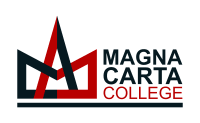Browse thousands of study programmes from around the world.
What do you want to study?
Where do you want to study?
Start your education journey here
Discover
Browse thousands of degrees from around the world
Compare
See programs side by side to find the right one for you
Connect
Contact the schools' admissions offices directly
Skip all disciplines
Discover programs by discipline
Humanities Studies
Management Studies
Social Sciences
Education
Business Studies
Health Care
Technology Studies
Economic Studies
Administration Studies
Marketing Studies





